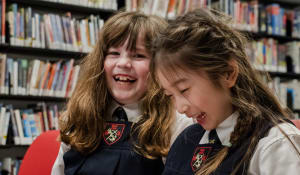Imagine this: You've joined a spin class at the gym where they keep records of each spinner's speed and kilometres travelled for that day. Every day they post a list of those who have improved. You've monitored the odometer yourself and you know that both your speed and your kilometres travelled have increased steadily every day, but when you check the bulletin board you are on the list of people whose statistics have declined.
How can this be, you ask? "Well," says the spin coach, "at our club if you improve, but at a rate less than average, we consider your performance to have declined." If you are befuddled by such logic and imagine it to be the stuff of fantasy, think again, but this time, think education and the latest Fraser Institute's Report Card on Ontario's Elementary Schools.
If the many statistical transformations of EQAO data made by the Fraser Institute's report cause some doubts, then what can a parent do if thinking about the Fraser Institute Report's self-proclaimed objective of aiding in school selection, or when the school council is advocating for particular programs? I would begin, not with the Fraser report, but with EQAO reports themselves (just a mouse click away on the EQAO website under "School, Board, and Provincial Results"). Don't simply look at test score results but look at some of the other data gathered by EQAO. Examples include information on how much reading children do outside of school (sometimes referred to as reading for pleasure), the strategies they use in mathematics, or the varied technologies children use in reading (e.g., websites, email, e-books, etc.).
Why is this information important? Because it tells you what kind of school your child is in and whether the school focuses too narrowly on test scores at the expense of larger long-term benefits. Consider, for example, the well-established research finding that links reading for pleasure and later school achievement. If the schools scores are high but children aren't reading outside of school, then the school is sacrificing long-term achievement at the expense of teaching too narrowly to the skills that appear on the test. In essence, such schools have turned reading into something analogous to the clichéd vegetable item which adults say is good for children but which children avoid. Building a larger picture from EQAO data is the way to find out if your child's school is interested in promoting more than high test scores.
You can back up that data by finding out from parents "on the ground" what kind of place the school is. Solid information is a conversation away. Ask neighbourhood parents if the school gets their children excited about reading and mathematics. Schools that cultivate a love of learning and a curiosity about the world are schools that prepare children well for the rest of their school careers and for life in general. Those are the kinds of schools parents and children deserve.
—Sharon Murphy, professor at the faculty of education at York University, whose research specialties include assessment and literacy learning.





















